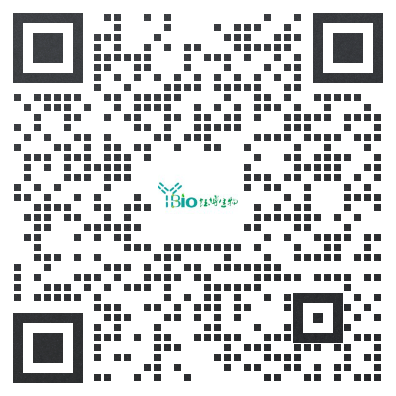
Anti-SIGLEC7抗体
产品名称: Anti-SIGLEC7抗体
英文名称: SIGLEC7
产品编号: YB--10103R
产品价格: null
产品产地: 中国/美国
品牌商标: Ybscience
更新时间: 2023-08-17T10:29:50
使用范围: 科研使用
上海钰博生物科技有限公司
- 联系人 : 陈环环
- 地址 : 上海市沪闵路6088号龙之梦大厦8楼806室
- 邮编 : 200612
- 所在区域 : 上海
- 电话 : 183****2235 点击查看
- 传真 : 点击查看
- 邮箱 : shybio@126.com
- 二维码 : 点击查看
Anti-SIGLEC7抗体
| 产品编号 | YB-10103R |
| 英文名称 | SIGLEC7 |
| 中文名称 | 唾液酸结合性免疫球蛋白样凝集素7抗体 |
| 别 名 | Sialic Acid Binding Ig-Like Lectin 7; AIRM1; QA79 Membrane Protein; SIGLEC-7; D-Siglec; AIRM-1; CDw328; P75; Sialic Acid Binding Ig-Like Lectin 19, Pseudogene; Adhesion Inhibitory Receptor Molecule 1, Siglec-7; Sialic Acid Binding Ig-Like Lectin, Pseudogene 2; Sialic Acid Binding Immunoglobulin-Like Lectin 7; Adhesion Inhibitory Receptor Molecule 1; Sialic Acid-Binding Ig-Like Lectin 7; CD328 Antigen; P75/AIRM1; SIGLEC19P; SIGLECP2; CD328; QA79; SIGL7_HUMAN; |
| 规格价格 | 100ul/1580元 购买 200ul/2480元 购买 大包装/询价 |
| 说 明 书 | 100ul 200ul |
| 研究领域 | 肿瘤 心血管 细胞生物 免疫学 神经生物学 干细胞 细胞表面分子 |
| 抗体来源 | Rabbit |
| 克隆类型 | Polyclonal |
| 交叉反应 | Human, |
| 产品应用 | ELISA=1:500-1000 IHC-P=1:400-800 IHC-F=1:400-800 ICC=1:100-500 IF=1:100-500 (石蜡切片需做抗原修复) not yet tested in other applications. optimal dilutions/concentrations should be determined by the end user. |
| 分 子 量 | 51kDa |
| 细胞定位 | 细胞膜 |
| 性 状 | Lyophilized or Liquid |
| 浓 度 | 1mg/ml |
| 免 疫 原 | KLH conjugated synthetic peptide derived from human SIGLEC7:178-280/467 |
| 亚 型 | IgG |
| 纯化方法 | affinity purified by Protein A |
| 储 存 液 | Preservative: 15mM Sodium Azide, Constituents: 1% BSA, 0.01M PBS, pH 7.4 |
| 保存条件 | Store at -20 °C for one year. Avoid repeated freeze/thaw cycles. The lyophilized antibody is stable at room temperature for at least one month and for greater than a year when kept at -20°C. When reconstituted in sterile pH 7.4 0.01M PBS or diluent of antibody the antibody is stable for at least two weeks at 2-4 °C. |
| PubMed | PubMed |
| 产品介绍 | background: Siglec 7 is a member of the Siglec (sialic acid-binding immunoglobulin like lectin) subgroup of the immunoglobulin superfamily. Siglec 7 is able to mediate high levels of sialic acid-dependent binding to human erythrocytes and soluble sialoglycoconjugates. Addition of anti-Siglec 7 to haematopoietic cell cultures leads to reduced cell growth and prevents the development of dendritic cells. Predominantly expressed by resting and activated natural killer cells and at lower levels by granulocytes and monocytes. High expression can be found in tissues like the placenta, liver, lung, spleen, and peripheral blood leukocytes. Function: Putative adhesion molecule that mediates sialic-acid dependent binding to cells. Preferentially binds to alpha-2,3- and alpha-2,6-linked sialic acid. Also binds disialogangliosides (disialogalactosyl globoside, disialyl lactotetraosylceramide and disialyl GalNAc lactotetraoslylceramide). The sialic acid recognition site may be masked by cis interactions with sialic acids on the same cell surface. In the immune response, may act as an inhibitory receptor upon ligand induced tyrosine phosphorylation by recruiting cytoplasmic phosphatase(s) via their SH2 domain(s) that block signal transduction through dephosphorylation of signaling molecules. Mediates inhibition of natural killer cells cytotoxicity. May play a role in hemopoiesis. Inhibits differentiation of CD34+ cell precursors towards myelomonocytic cell lineage and proliferation of leukemic myeloid cells (in vitro). Subcellular Location: Membrane; Single-pass type I membrane protein Tissue Specificity: Predominantly expressed by resting and activated natural killer cells and at lower levels by granulocytes and monocytes. High expression found in placenta, liver, lung, spleen, and peripheral blood leukocytes. Post-translational modifications: Tyrosine phosphorylated. Similarity: Belongs to the immunoglobulin superfamily. SIGLEC (sialic acid binding Ig-like lectin) family. Contains 2 Ig-like C2-type (immunoglobulin-like) domains. Contains 1 Ig-like V-type (immunoglobulin-like) domain. SWISS: Q9Y286 Gene ID: 27036 Database links: Entrez Gene: 27036 Human Omim: 604410 Human SwissProt: Q9Y286 Human Unigene: 274470 Human Unigene: 655393 Human Important Note: This product as supplied is intended for research use only, not for use in human, therapeutic or diagnostic applications |
